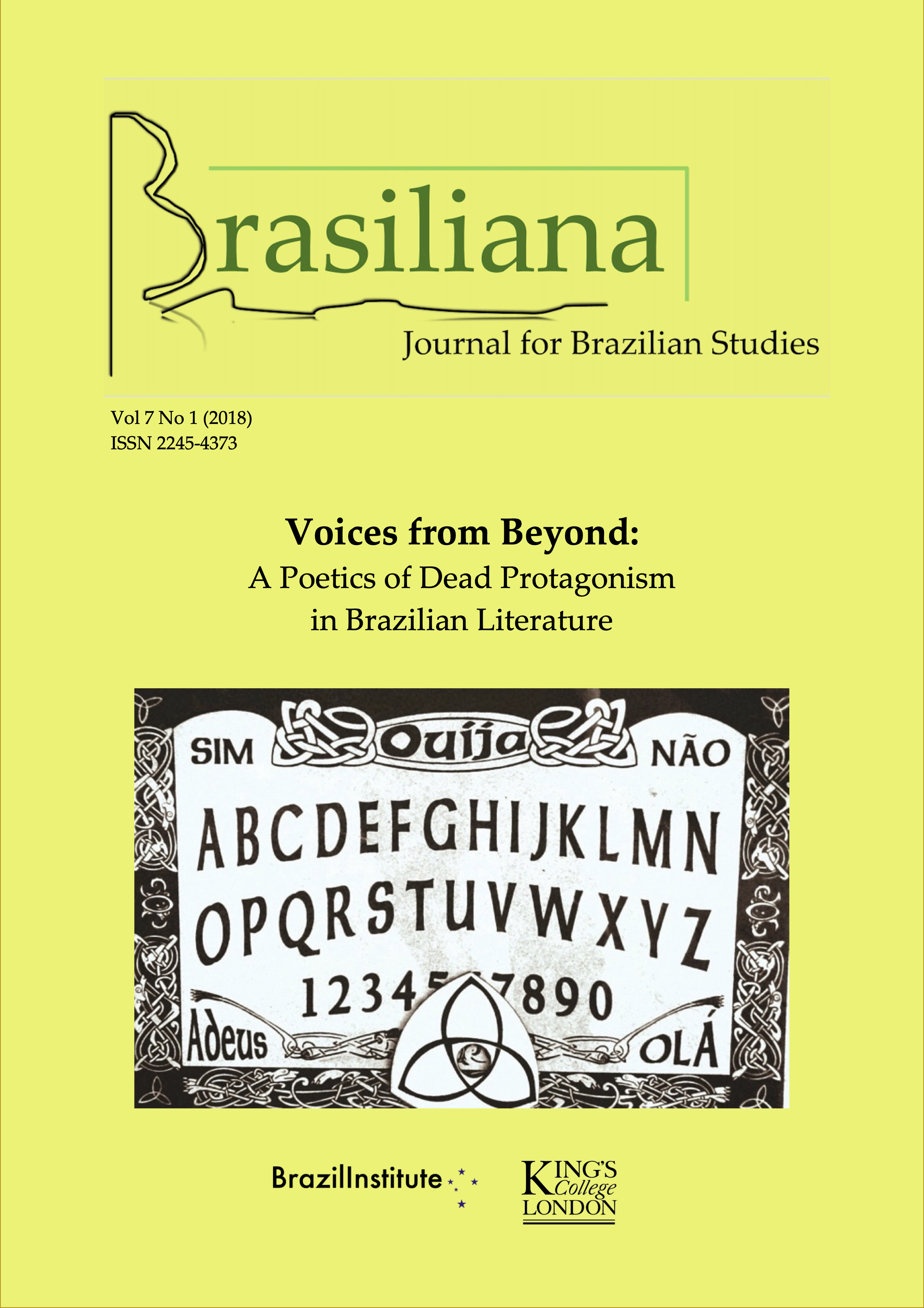A sombra do mártir: visões da morte na peça histórica romântica Bartolomeu de Gusmão, de Agrário de Menezes
Main Article Content
Abstract
The present article reflects about fascination with the death and the fall of the hero in Brazilian romantic dramaturgy. In order to do so, from a comparison with other genres like the epic and the lyric, according the theoretical contributions of Hegel (2014; 2001), we aims to analyse the historical drama Bartolomeu de Gusmão, published in 1865. In Agrário de Menezes’s work, as well as other playwrights of Brazilian romanticism, the difficulties imposed on heroic action and the perspective of failure form an integral part of the configuration of action. The drama have as their subject the life – and the death – of Bartolomeu Lourenço, the priest inventor of “Passarola”, a flying machine. Menezes put on the stage a dead character – the priest’s ghost – changing the historical events and inserting the theme of the supernatural. Pointing out their similarities and dissimilarities with other historical dramas, the analysis mobilizes concepts like hero, martyr, action and event.
Key-words: Bartolomeu de Gusmão; historial drama; hero; romantic dramaturgy; Agrário de Menezes.
Article Details
![]()
Articles published in Brasiliana are licensed under a Creative Commons Attribution-NonCommercial-NoDerivs 3.0 Unported License.
When publishing open access, the author signs an author publishing agreement in which they retain copyright and give Brasiliana the right to publish the article. Our Open Access publications are distributed under the terms of the Creative Commons Attribution 4.0 International License, which permits unrestricted use, distribution, and reproduction in any medium, provided the original work is properly cited.

